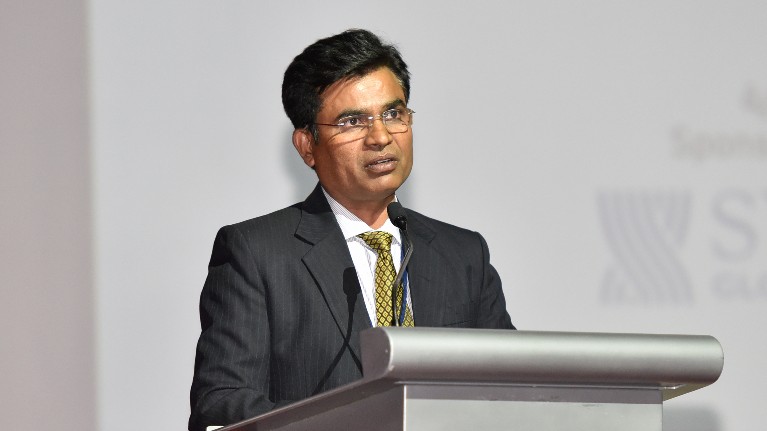Op-Ed
Why workers must be central to safety and health efforts in Qatar
As we celebrate World Day for Safety and Health at Work 2022, Afroz Dawar, OSH professional and workers representative, reflects on the importance of social dialogue for the promotion of safety at work in Qatar.

For the past 12 years, I’ve been a safety and health professional in Qatar. This year, I was nominated to speak at a national event to mark World Day for Safety and Health, by an occupational safety and health (OSH) network supported by Building and Wood Workers International (BWI). In preparing my remarks, I met with other members of the network, to ensure I shared the views and realities of workers in Qatar.
My main message for the audience was that workers must actively participate in creating a safe and healthy working environment. This means contributing to a system of clearly defined rights, responsibilities and duties, where prevention and mitigation of OSH risks are accorded the highest priority.
Why is workers’ participation in this process so crucial?
At the workplace level, workers’ participation is a major contributing factor to the reduction of occupational diseases and injuries. Workers have first-hand experience of site conditions, and they are often the first to identify potential problems. Their participation in the design and implementation of OSH prevention and mitigation policies can improve their effectiveness. It also increases workers’ motivation, and has a positive impact on their mental and psychological health.That is why the ILO international standards and the national legislation in Qatar both emphasize the importance of workers’ participation in the design and implementation of policies and programmes at the national and enterprise levels. Article 126 of Law No. 14 of 2004, calls for joint management and workers committees to study and discuss all work-related matters in the company, and in particular the prevention of work-related accidents and injuries and compliance with safety and health rules. Similar provisions exist in policy and guidance documents, like the Qatar Construction Specifications of 2014, which define the involvement of the workforce in the identification and control of risks as crucial for reducing accidents.
In practice, every major establishment should have a Safety Committee that develops OSH plans, procedures and policies, and risk assessments. Workers should participate in other prevention measures, including OSH walkthroughs, workplace inspections, accident and near miss reporting and investigations, and campaigns. Workers should also participate in the selection of premises, tools, machines, and work schedules. Recognition, appreciation, as well as promotions and awards, also play a vital role in rewarding workers for their effective contribution to OSH.
How do we select workers’ representatives?
Workers’ representatives in Safety Committees must be nominated based on their proven competency, training record, skills and education, and active interest in the promotion of OSH. Workers gain the confidence to do this when they are properly empowered, when they feel safe to report their concerns, and ultimately when they see prompt actions being taken as a result of their contribution.My hopes for the future
As a dedicated OSH professional, I appreciate the efforts of Qatar’s Ministry of Labour (MOL) in developing new legislation and approaches that have contributed to improving the standards of living and safety for workers, and that have led to employers raising the level of OSH requirements. In addition, MOL’s engagement with the network of community leaders and BWI demonstrates their recognition of the value of social dialogue. These ongoing efforts are laudable and should be sustained.As OSH professionals and community leaders, we feel the commitment and responsibility to protecting workers health and safety on a daily basis. We have a lot to contribute to reducing hazards and risks, and to saving lives and livelihoods.